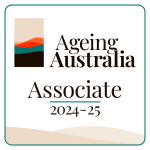Overseas Nurses: Fast-Track to Australia’s Healthcare Future

The Growing Demand for Overseas Registered Nurses in Australia: Benefits and Strategies
In recent years, Australia has witnessed a significant surge in the demand for skilled nursing professionals, with the healthcare system facing unprecedented challenges. The growing need for qualified nurses has led to an innovative solution: hiring locally-based overseas Registered Nurses (RNs). This strategy not only addresses critical workforce shortages but also brings a wealth of benefits to the Australian healthcare system.
Background and Context: Australia’s Nursing Landscape
Australia has long grappled with nursing shortages, particularly in rural and remote areas. The aging population and expansion of healthcare facilities have intensified this challenge. The impact of these factors has been further exacerbated by recent global events, most notably the COVID-19 pandemic, which has stretched healthcare resources to their limits.
Historical Nursing Shortages
For decades, Australia has struggled to maintain adequate nursing staffing levels across its vast geography. Rural and remote areas have been particularly affected, with many facilities operating below optimal staffing ratios. This shortage has led to increased workloads for existing staff, potentially compromising patient care quality and staff well-being.
Impact of Aging Population and Healthcare Facility Expansion
Australia’s aging population has significantly increased the demand for healthcare services. As people live longer, they often require more complex and long-term care, placing additional strain on the healthcare system. Simultaneously, the expansion of healthcare facilities to meet this growing demand has created more job openings, further widening the gap between available positions and qualified nurses to fill them.
Recent Developments: COVID-19 and AHPRA’s 2025 Registration Updates
The COVID-19 pandemic has brought the nursing shortage into sharp focus, highlighting the critical need for skilled healthcare professionals. In response to these challenges, the Australian Health Practitioner Regulation Agency (AHPRA) has introduced significant updates to the registration process for overseas nurses, set to take effect in 2025. These changes aim to streamline the registration process, reduce wait times, and simplify procedures, allowing internationally qualified nurses to begin their careers in Australia much sooner.
The Current Significance of Hiring Overseas RNs
Addressing Critical Workforce Shortages
The influx of overseas RNs has become a crucial strategy in addressing Australia’s nursing shortage. By bringing in qualified professionals from abroad, healthcare facilities can quickly fill critical gaps in their workforce, reducing pressure on existing staff and improving patient-to-nurse ratios.
Meeting Increased Healthcare Demands
With the growing healthcare needs of an aging population and the ongoing challenges posed by the COVID-19 pandemic, overseas RNs play a vital role in meeting the increased demand for healthcare services. Their expertise and experience contribute to maintaining high-quality care standards across various healthcare settings.
Enhancing Cultural Diversity in Healthcare
Overseas RNs bring diverse cultural backgrounds and language skills, which are invaluable in Australia’s multicultural society. This diversity enhances patient care by improving communication with patients from various cultural backgrounds and fostering a more inclusive healthcare environment.
Latest Statistics and Trends
Recent data highlights the significant impact of overseas RNs on Australia’s healthcare workforce:
- In the last year alone, 16,622 nurses from around the world registered to work in Australia, a substantial increase from the 5,610 in the pre-COVID year of 2018-2019.
- Over the past two years, 27,810 overseas nurses have joined the Australian healthcare workforce, with 70% coming from New Zealand under a special agreement.
- The Australian government has invested $90 million in the 2024-25 budget to grow the healthcare workforce, emphasizing the urgent need for more skilled health workers.
These statistics underscore the growing reliance on overseas RNs to meet Australia’s healthcare needs and the government’s commitment to supporting this initiative.
Economic Benefits of Hiring Overseas RNs
The economic impact of hiring overseas RNs extends beyond simply filling vacant positions. Experts highlight that investing in the nursing workforce, including overseas RNs, yields significant economic benefits:
Return on Investment in Healthcare Workforce
Studies have shown that for every $1 invested in better health, there is a return of between $2 and $4. This return manifests in various ways, including improved health outcomes, increased productivity, and reduced healthcare costs over time.
Improved Health Outcomes and Reduced Healthcare Costs
By addressing staffing shortages, overseas RNs contribute to better patient care, potentially reducing hospital readmissions and complications. This, in turn, can lead to significant cost savings for the healthcare system.
Increased Productivity in the Healthcare Sector
Adequate staffing levels, facilitated by the inclusion of overseas RNs, can lead to improved efficiency in healthcare delivery. This increased productivity can result in shorter wait times, more efficient use of resources, and better overall patient experiences.
Streamlined Registration Process for Overseas RNs
AHPRA’s 2025 updates for overseas nurses represent a significant step forward in attracting and integrating international talent into Australia’s healthcare system:
Reduced Wait Times and Simplified Procedures
The new registration process is designed to reduce waiting times by 6-12 months, allowing qualified nurses to enter the workforce more quickly. This streamlined approach removes unnecessary barriers and simplifies the registration procedure.
Case Study: Sarah’s Experience with the New Pathway 1 System
Sarah, a registered nurse with 10 years of experience in the UK’s National Health Service, exemplifies the efficiency of the new system. She applied for registration in Australia under the new Pathway 1 system and was granted registration within 8 weeks, starting work at a major Sydney hospital by July 2025. Sarah reported feeling well-prepared and supported in her new role, highlighting the effectiveness of the streamlined process.
Cultural Contributions of Overseas RNs
The cultural diversity brought by overseas RNs significantly enhances the Australian healthcare system:
Diverse Language Skills Enhancing Patient Care
Many overseas RNs are multilingual, which is invaluable in communicating with patients from diverse linguistic backgrounds. This ability can lead to improved patient understanding, better adherence to treatment plans, and ultimately, better health outcomes.
Cultural Knowledge Improving Healthcare Delivery
Overseas RNs bring unique cultural insights that can enhance the delivery of culturally sensitive care. This knowledge is particularly valuable in Australia’s multicultural society, where understanding diverse cultural practices and beliefs is crucial for providing comprehensive, patient-centered care.
Fostering an Inclusive Healthcare Environment
The presence of overseas RNs contributes to creating a more inclusive workplace culture. This diversity can lead to increased cultural awareness among all staff members, fostering an environment of mutual respect and understanding.
Technological Advancement Opportunities
The integration of overseas RNs also presents opportunities for technological advancement in the healthcare sector:
Access to State-of-the-Art Medical Technologies
Many overseas RNs come from countries with advanced healthcare systems, bringing experience with cutting-edge medical technologies. This exposure can accelerate the adoption and effective use of new technologies in Australian healthcare settings.
Upskilling Programs for Digital Health Systems
To ensure that overseas RNs are proficient in Australia’s digital health systems, many institutions offer comprehensive upskilling programs. These initiatives not only benefit the overseas RNs but also contribute to the overall technological competency of the healthcare workforce.
Enhancing Overall Healthcare Quality Through Technology Adoption
The combination of diverse international experience and focused training on Australian systems can lead to innovative approaches in healthcare delivery, potentially improving efficiency and patient outcomes through the effective use of technology.
Comparison to Alternatives
While hiring overseas RNs has proven effective, it’s important to consider how this strategy compares to alternative approaches:
Domestic Workforce Development
Developing the domestic nursing workforce is a crucial long-term strategy. However, it requires significant time and resources to educate and train new nurses. In contrast, hiring overseas RNs provides an immediate solution to workforce shortages, complementing long-term domestic development efforts.
Temporary Work Visas
While temporary work visas can provide short-term relief, they may not offer the same level of stability and long-term commitment as permanent migration pathways. The new fast-track registration process for overseas nurses provides a more stable and attractive option, encouraging long-term integration into the Australian healthcare system.
Automation and Technology
While automation and technology can support healthcare delivery in various ways, they cannot replace the need for skilled nursing professionals. Overseas RNs bring essential human skills, empathy, and experiences that are irreplaceable by technology alone.
Current Controversies and Debates
The recruitment of overseas RNs is not without its challenges and ethical considerations:
Brain Drain Effect on Low- and Middle-Income Countries
There is ongoing concern about the ‘brain drain’ effect, where the recruitment of nurses from low- and middle-income countries exacerbates nursing shortages in these regions. This raises ethical questions about the global distribution of healthcare resources and the responsibility of developed countries in supporting healthcare systems worldwide.
Integration Challenges for Overseas Nurses
Despite support during the initial application and arrival stages, international nurses often face challenges during workplace integration. These can include cultural differences, varying clinical practices, and appointments that may not match their experience and qualifications. Addressing these challenges is crucial for the long-term success and well-being of overseas RNs.
Ethical Considerations in International Recruitment
The ethical implications of international nurse recruitment are complex. While it addresses critical shortages in Australia, it’s essential to consider the impact on source countries and ensure that recruitment practices are fair, transparent, and beneficial to all parties involved.
How To Support Overseas RNs in Australia
To ensure the success and well-being of overseas RNs, healthcare organizations and policymakers should implement comprehensive support strategies:
Develop Comprehensive Cultural Adaptation Programs
Create structured programs that help overseas RNs adapt to Australian culture, both within and outside the workplace. These programs should cover aspects such as local customs, communication styles, and professional norms in the Australian healthcare system.
Implement Mentoring Initiatives for New Overseas Nurses
Establish mentoring programs that pair experienced local nurses with newly arrived overseas RNs. This can provide valuable guidance, support, and a smoother transition into the Australian healthcare environment.
Create Supportive Work Environments to Ensure Retention
Foster inclusive work cultures that value diversity and recognize the unique contributions of overseas RNs. This includes promoting cultural awareness among all staff members and addressing any instances of discrimination or bias promptly.
Offer Language Support and Communication Skills Training
While many overseas RNs are proficient in English, providing additional language support and communication skills training can enhance their ability to interact effectively with patients and colleagues, particularly in understanding local idioms and healthcare terminology.
Provide Opportunities for Career Advancement and Specialization
Ensure that overseas RNs have access to the same career development opportunities as their local counterparts. This includes supporting further education, specialization, and leadership roles, which can improve retention and job satisfaction.
Frequently Asked Questions
Q: What qualifications are required for overseas RNs to work in Australia?
A: Overseas RNs must meet the requirements set by the Nursing and Midwifery Board of Australia (NMBA) and AHPRA. This includes demonstrating English language proficiency, completing a recognized nursing qualification, and passing clinical competency assessments. The specific requirements may vary depending on the nurse’s country of origin and experience.
Q: Are there any special visa categories for overseas nurses?
A: Yes, skilled migration visas are available for qualified nurses. These include the Skilled Independent visa (subclass 189) and the Skilled Nominated visa (subclass 190). These visas often provide a pathway to permanent residency, making Australia an attractive destination for overseas RNs seeking long-term career opportunities.
Q: How can healthcare facilities ensure successful integration of overseas RNs?
A: Successful integration requires a multi-faceted approach. Healthcare facilities should implement comprehensive orientation programs, provide cultural sensitivity training for all staff, offer ongoing support systems, and create mentoring opportunities. Regular check-ins and feedback sessions can also help identify and address any challenges early on.
Q: What are the career progression opportunities for overseas RNs in Australia?
A: Overseas RNs in Australia have numerous career progression opportunities. These include specialization in areas such as critical care, oncology, or mental health nursing. There are also opportunities for advancement into management roles, such as nurse unit managers or directors of nursing. Additionally, some nurses may pursue advanced practice nursing positions or roles in education and research.
Q: How does Australia ensure ethical recruitment of overseas nurses?
A: Australia adheres to the World Health Organization (WHO) Code of Practice on the International Recruitment of Health Personnel. This code provides ethical guidelines for international recruitment, emphasizing the importance of fair practices and the need to consider the impact on source countries. Additionally, Australia establishes bilateral agreements with source countries to ensure mutually beneficial recruitment practices.
Challenges and Solutions
Challenge: Cultural Adaptation and Workplace Integration
Solution: Implement comprehensive support programs that include cultural orientation, language support, and mentoring initiatives. These programs should be ongoing and tailored to the specific needs of overseas RNs, helping them navigate both professional and personal challenges in their new environment.
Challenge: Potential Skill Mismatches
Solution: Conduct thorough skills assessments upon arrival and provide targeted training programs to address any gaps. This ensures that overseas RNs are well-equipped to perform their roles effectively within the Australian healthcare context. Additionally, offering opportunities for further specialization or upskilling can help align their skills with specific healthcare needs.
Challenge: Ethical Concerns About International Recruitment
Solution: Adhere strictly to the WHO Code of Practice and establish transparent bilateral agreements with source countries. These agreements should focus on mutual benefits, such as knowledge exchange programs or support for healthcare system development in source countries. Additionally, investing in domestic nursing education and retention strategies can help balance the reliance on international recruitment.
Ethical Considerations and Best Practices
Adherence to WHO Code of Practice on International Recruitment
The World Health Organization’s Code of Practice on the International Recruitment of Health Personnel provides a framework for ethical recruitment. Australia’s commitment to this code ensures that recruitment practices are fair, transparent, and consider the potential impact on source countries’ health systems.
Establishment of Bilateral Treaties to Protect Against Brain Drain
Australia has established bilateral agreements with several countries to ensure that recruitment practices do not deplete critical healthcare resources in source countries. These agreements often include provisions for knowledge sharing, support for healthcare education in source countries, and mechanisms to encourage the return of nurses to their home countries after gaining experience in Australia.
Focus on Sustainable Migration Practices and Social Integration
Ethical recruitment goes beyond the initial hiring process. It involves creating sustainable migration pathways and ensuring the social integration of overseas RNs. This includes providing long-term career development opportunities, supporting family reunification where possible, and fostering inclusive communities that welcome overseas healthcare professionals.
Success Story: Outback Regional Hospital
The Outback Regional Hospital in Western Australia provides a compelling example of the positive impact of hiring overseas RNs. Faced with chronic staffing shortages that were affecting patient care, the hospital implemented a targeted recruitment strategy for overseas nurses.
Within three months, the hospital successfully recruited and integrated five highly qualified overseas RNs. The impact was immediate and significant:
- Patient wait times decreased by 30%, improving access to care and patient satisfaction.
- Staff morale improved dramatically, with existing nurses reporting reduced stress levels and better work-life balance.
- The diverse skills and experiences brought by the overseas RNs led to the implementation of several best practices, enhancing the overall quality of care.
This success story highlights how strategic recruitment of overseas RNs can transform healthcare delivery, particularly in underserved areas.
Tools and Resources
To support the integration and success of overseas RNs, several tools and resources are available:
AHPRA’s Fast-Track Registration System
AHPRA’s new fast-track registration system, set to launch in 2025, will significantly reduce processing times for overseas nurse applications. This system will streamline the registration process, making it easier for qualified nurses to begin working in Australia.
Cultural Competency Training Programs
Many organizations offer cultural competency training programs specifically designed for healthcare professionals. These programs help overseas RNs understand Australian workplace culture and improve their ability to provide culturally sensitive care.
Language Support Resources
Various language support resources are available, including specialized medical English courses and communication skills workshops. These resources help overseas RNs refine their language skills, particularly in medical terminology and patient communication.
Conclusion
The recruitment of overseas Registered Nurses represents a vital strategy in addressing Australia’s nursing shortage and enhancing the quality of healthcare delivery. The benefits extend beyond simply filling vacant positions; overseas RNs bring diverse skills, cultural knowledge, and innovative perspectives that enrich the Australian healthcare system.
Key benefits of hiring overseas RNs include:
- Addressing critical workforce shortages
- Enhancing cultural diversity in healthcare
- Contributing to economic growth through improved health outcomes
- Bringing international best practices and experiences to Australian healthcare
However, it’s crucial to approach international recruitment ethically and sustainably. This involves adhering to international guidelines, supporting the integration and professional development of overseas RNs, and considering the impact on source countries.
Looking to the future, the streamlined registration processes and increased support for overseas RNs promise to make Australia an increasingly attractive destination for international nursing talent. As the healthcare landscape continues to evolve, the contributions of overseas RNs will play a pivotal role in shaping a robust, diverse, and high-quality healthcare system in Australia.
Additional Resources
For those seeking more information on hiring overseas RNs in Australia, the following resources provide valuable insights and guidance:
- AHPRA’s 2025 Fast-Track Registration Information
- Australian Government Healthcare Workforce Initiatives
- WHO Code of Practice on International Recruitment of Health Personnel
These resources offer comprehensive information on registration processes, government initiatives, and ethical guidelines for international recruitment in healthcare.









